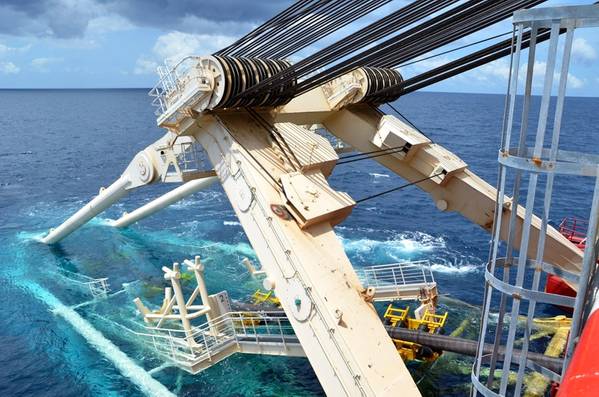
DNV has released its latest standard, DNV-ST-F207 for hybrid thermoplastic composite flexible pipes (TCPs), which facilitates the integration of innovative technologies like carbon fiber armor into flexible riser designs to enhance efficiency and reliability for deepwater projects.
The DNV-ST-F207 standard addresses the challenges faced by conventional risers in deepwater applications, where high top tension and corrosive environments are common.
TPCs have been challenging traditional steel pipes in the last decade by offering a light, ductile, spoolable and corrosion-free solution for transportation of liquids and gases.
The primary objective of the DNV-ST-F207 standard is to facilitate the integration of innovative technologies, such as carbon fiber armor, into flexible riser designs.
By qualifying these technologies and ensuring their adherence to recognized international standards, specifically API Spec 17J and DNV-ST-F119, DNV aims to enhance the safety, efficiency, and sustainability of deepwater projects.
The new standard merges different design methods (Working Stress Design and Load and Resistance Factor Design or partial safety factor) into a unified approach. Through this consolidated method, components are made to withstand different kinds of stresses, and extensive tests will ensure they meet safety standards under specific conditions.
"Overall, this initiative reflects a commitment to advancing technology in the offshore industry, ensuring the highest standards of safety, efficiency, and sustainability in deepwater projects thanks to our expertise and the dedication of our global teams of specialized experts," said Prajeev Rasiah, Executive Vice President and Regional Director Northern Europe, Energy Systems at DNV.
The implementation of the DNV-ST-F207 standard is expected to have significant consequences for deepwater projects - by incorporating carbon fiber armor elements, risers will become lighter, resulting in lower top tension, and this innovative solution provides a more sustainable and reliable option for deepwater applications.
Furthermore, carbon fiber exhibits superior resistance to degradation in aggressive environments, showcasing excellent fatigue performance.
According to DNV, the release of the DNV-ST-F207 standard marks a significant milestone in the offshore industry's pursuit of technological advancements for a more sustainable future.